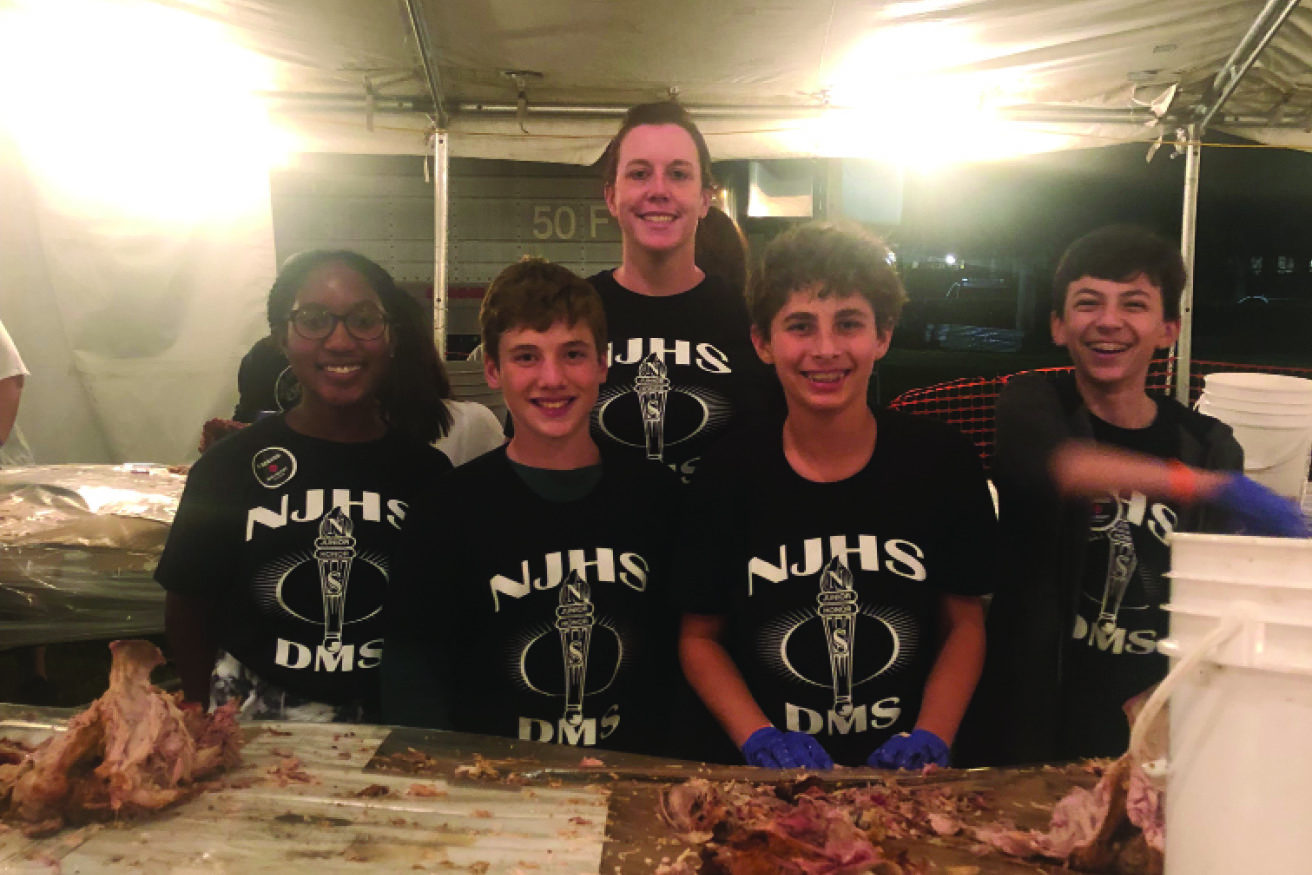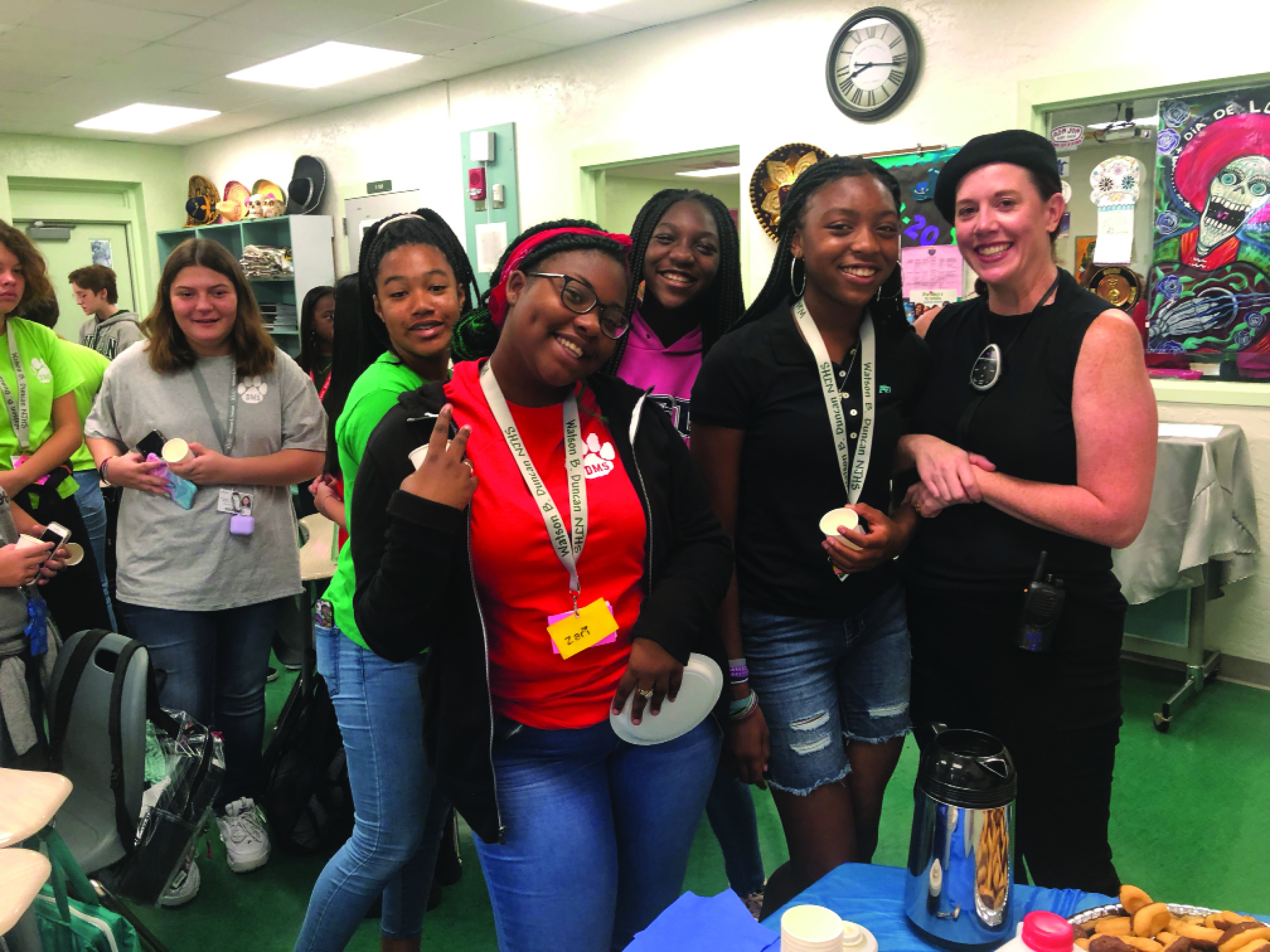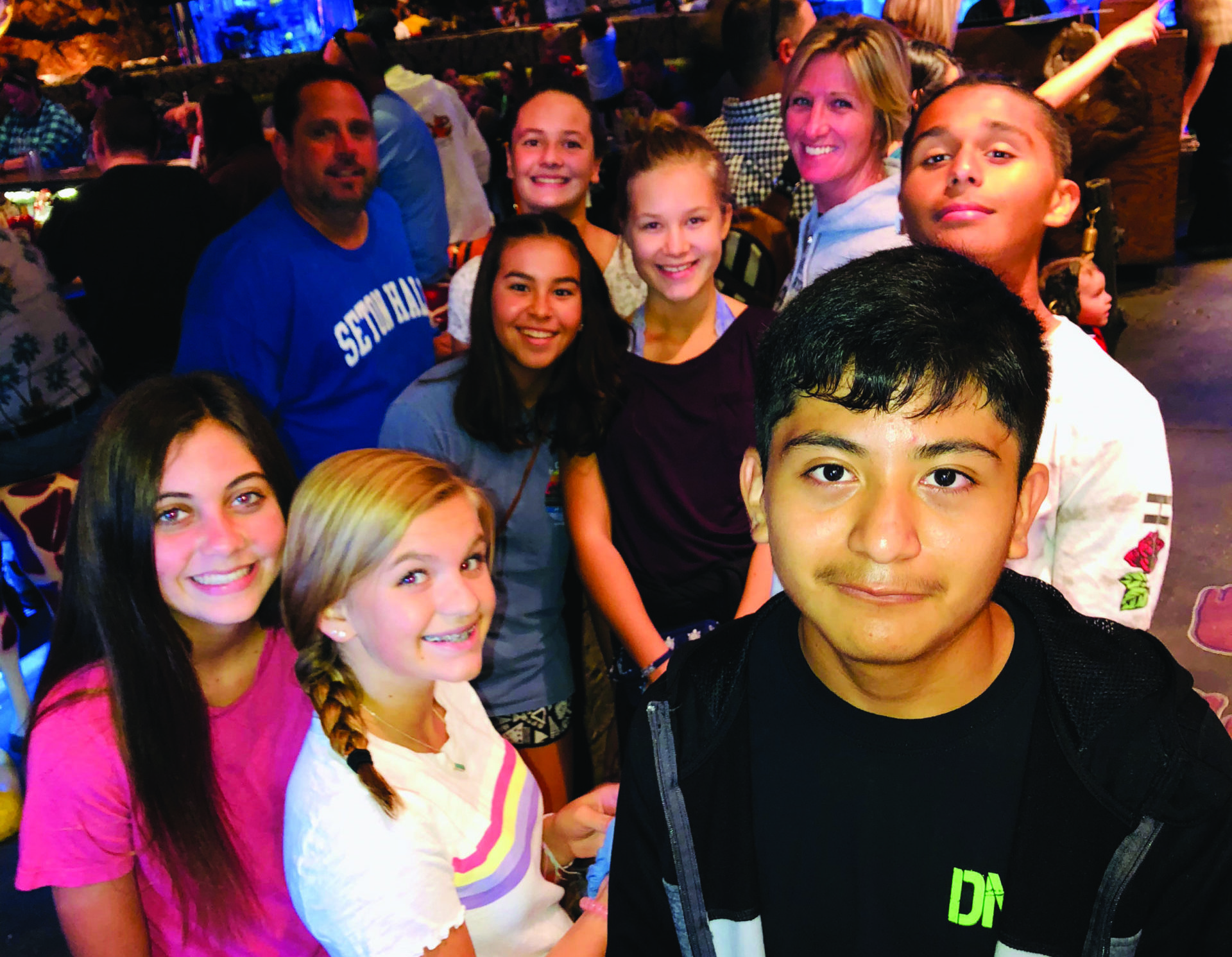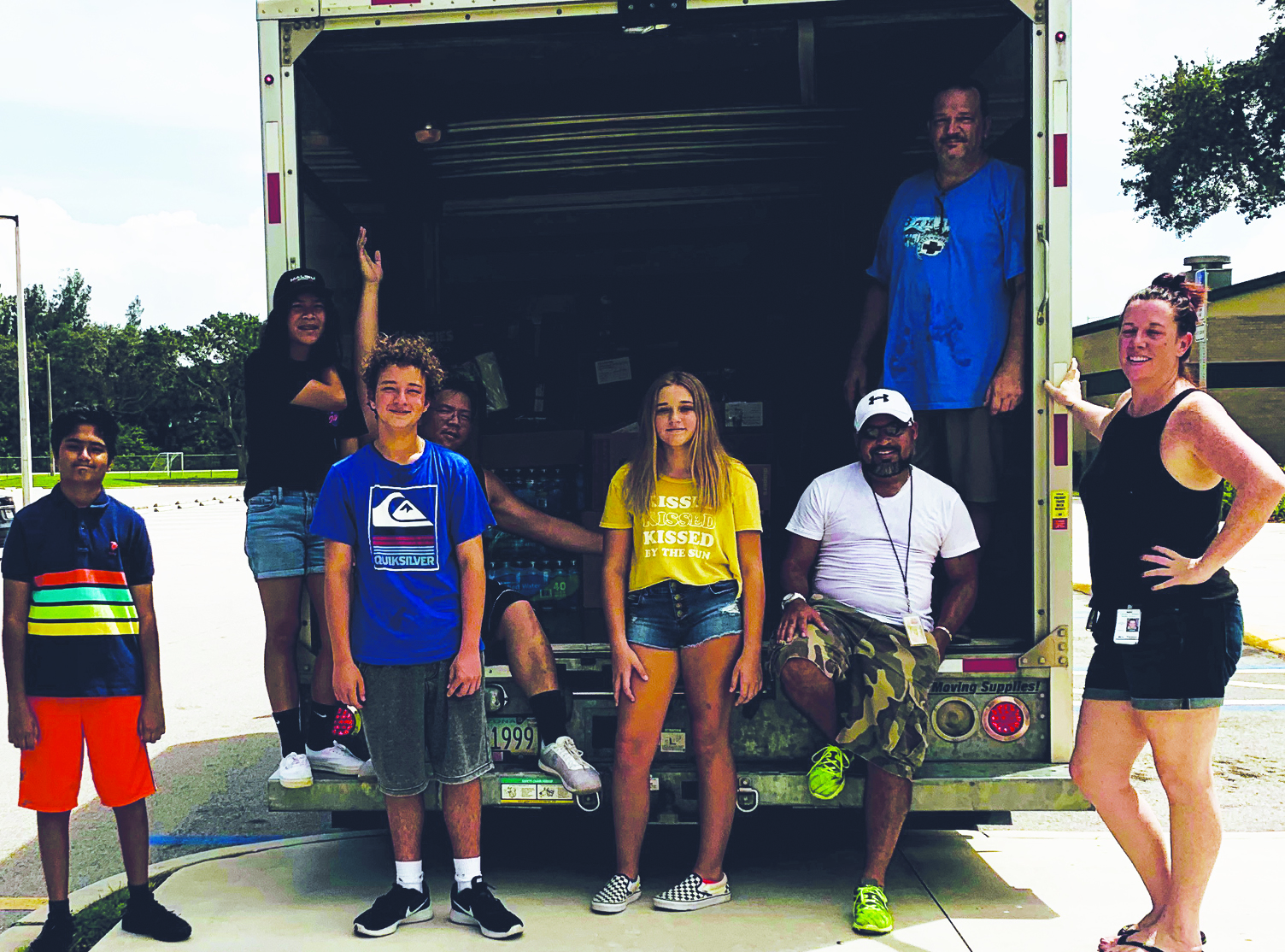Almost every secondary school in the United States provides extracurricular activities. These activities of academic groups, clubs, and sports help build a well-rounded education—they provide an environment for teaching skills and helping students form and execute goals that can transform their lives. Students acquire collaboration skills, individual and group responsibility, and a feeling of shared culture and community thanks to these activities.
According to a 2019 study by World Education Services, extracurricular activities can boost students’ feelings of connection or loyalty to their school and lower the probability of academic failure and drop out. If involvement in extracurricular activities can impact academic performance, then making these activities available to students from all backgrounds must be a top priority to ensure student success and to help close the opportunity gap.
Steps Toward Diversity
When I took over the NJHS chapter at Watson B. Duncan Middle School in Palm Beach Gardens, FL, in 2016, Principal Phillip D’Amico and I decided that we would transform the group. The chapter lacked diversity. So, one of our primary goals was to make it more accessible and equitable for all students. At Duncan, we have a beautifully diverse group of kids in our school, and we wanted our NJHS chapter to reflect that. Our goal was to give all our students the opportunity to shine while helping others. We started by implementing the following changes:

NJHS students give their time during the 2018 Thanksgiving break to prepare meals for the less fortunate.
- Lowering the GPA requirement. When I inherited the chapter, students were required to have straight A’s. We expanded the criteria to include B’s in a student’s cumulative GPA.
- Limiting the scope. We changed the basis of acceptance to students’ cumulative seventh grade GPA, excluding their sixth grade GPA. (Students join in eighth grade.)
- Looking forward. We chose to allow students in (on a case-by-case basis) who may have had some type of disciplinary infraction in prior years. Students sometimes make mistakes, but that doesn’t have to hinder their growth.
After we made these three changes, we began to see the diversity of the group change dramatically. Since the changes have been in effect, I have had students from our local group home, students from various ethnicities, and students who may not have had a chance to join because of past mistakes (or not having all A’s) who are now part of NJHS.
Building on the Benefits
Joining a student group like NJHS helps kids learn more about themselves, their goals, and their talents. Students can benefit from other students’ experiences and pull out their existing knowledge to share with their peers. This self-awareness can serve students well in the future. In addition to this, we’ve seen:
- Improvement of soft skills. Sometimes known as “people skills,” soft skills are the abilities that enable us to engage effectively with others—communication, attitude, and work ethic.
- Enhanced networking opportunities. Meeting new students, creating contacts, and developing relationships aid students as they continue their academic careers.
- Deeper understanding of team dynamics. Working successfully in a group is a necessary skill as youth grow and gain knowledge. Being a member of NJHS teaches students how to accomplish this by placing them in circumstances where they must both accept and provide guidance.

NJHS students host an International Coffee Hour for students and teachers.
In the subsequent years since we’ve explored this new direction for our NJHS chapter, I have had the opportunity to work with some exceptional students. These kids have learned the importance of giving back to the community and helping others, which is a valuable life lesson. As a group, we had the opportunity to go to a leadership conference (before COVID-19), and our student president Randy Ramirez was very shy and reserved. By the end of the trip, he wouldn’t stop talking! The opportunity he had to experience the trip exposed him to students he would not normally have spoken with, and this helped him come out of his shell. So transformative was this experience that he was voted king of the end-of-year dance! We still talk about the legendary Randy and believe someday he may become president. We firmly believe that Randy’s positive change started with his opportunity to join NJHS.
How Can You Make Your Chapter More Accessible?

NJHS students and future president Randy Ramirez (front right) attends the 2018 Florida Leadership Conference in Orlando.
We have found that making the chapter’s activities more accessible is the best way to keep students engaged and excited. Here are a few ways we do that:
- Holding meetings during school hours. We hold meetings during lunchtime. I provide the meal, and we go over items of importance for that month. We also have NJHS plan the fall dance, which goes on during school hours so they may participate. This gives the students an opportunity to take part in planning something that gives them pride because it is for their school. They work on banners, decorate the gym, and more.
- Planning one act of service a month and keeping it something that can be done at school. For example, the most successful service opportunity we have had was helping the victims of the devastating Category 5 Hurricane Dorian. I organized a supply drive, secured a container on a Bahamian tanker to fill up, and coordinated delivery of the supplies to the ship. The students and their parents went above and beyond to help the people of the Bahamas by making baby blankets and bringing food, water, clothing, baby supplies, and first-aid items. We were able to send all of these necessities to the people who needed it most. These donations came from parents and kids—who may be struggling in their own right—and went to those in the midst of an international emergency.
- Charging a low fee (if one must be charged at all). I charge $20 for the year, which includes T-shirts and food for our meetings. If anyone can’t afford that, it is never an issue.
- Encouraging students to fulfill their service hours outside of school if they see any opportunities. They may find it easier to work with their church or local homeless shelter because they have connections.
It is important to note that expanding your roster can come with complications. The biggest challenge I faced when I opened the group to a larger number of students was keeping track of those who did not come to meetings. I had 106 students, and there were plenty of issues that came up just due to the size of the group. We simply had to work through them with a little strategic planning. If the group is large, plan for a large location to hold meetings. Have officers check for attendance to keep up with who is not coming, and speak to those students after the meetings.
An Experience Like No Other

Loading the container for the delivery of aid to the Bahamian victims of 2019’s Hurricane Dorian.
Advising the NJHS chapter at Duncan Middle School has been an experience like no other. The opportunity to teach students from all walks of life to give back to their community while developing themselves as human beings is priceless. Having a diverse group of kids to work with has changed the group dynamic because we have students with different perspectives offering opinions and ideas. This ensures other perspectives are considered, giving students a chance to shine that they may not have had otherwise. I have seen improvement in the way students interact with each other as they learn about their new friends. The camaraderie among students and school pride have improved tremendously.
Kathleen Thomas, MEd, is an aspiring leader, Spanish teacher, and NJHS adviser at Watson B. Duncan Middle School in Palm Beach Gardens, FL. She is thankful to her principal, Phillip D’Amico, for all the encouragement he has given throughout this journey.


